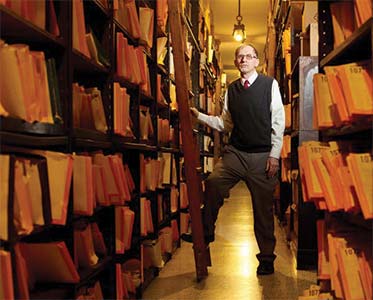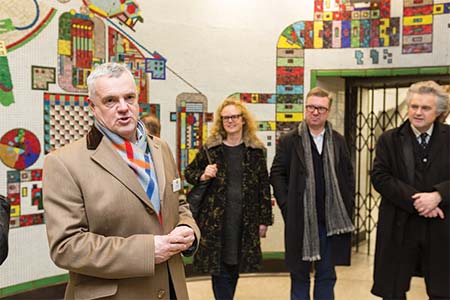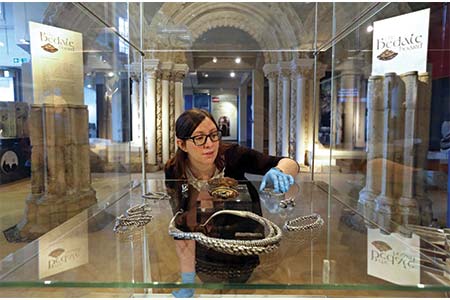The BA History students can find ample job opportunities in both the public sector and private sector. There are a good number of job roles available in this sector. The present article tries to discuss some of the important job roles available in the field of history for the BA History students.
Academic Researcher
Academic Researchers carry out original and high-level research that generates new knowledge and progresses current understanding of the field of history and historical events. They are responsible to understand the subject of history and try to elaborate in their works about the historical and personalities sacrificed to help the sustainability of mankind.
Role of an Academic Researcher
As an academic researcher one will have to apply the expertise and skills developed through study and research in the field of history and archaeology. As an academic researcher one will have to publish papers of the historical works and showcase the results obtained by different research studies.
Responsibilities of an Academic Researcher
As an Academic Researcher one is required to:
- Carry out original and high-level individual and collaborative research with other team members
- Analyse large sets of data and information to draw relevant conclusions
- Work to deadlines as required by fund or grant holder
- Prepare and deliver presentations at national and international conferences to large audiences
- Participate in group meetings with other researchers and support staff
- Apply for sources of external funding to that provided by the employer
- Undertake thorough and comprehensive history and related literature reviews
- Develop knowledge and skills relating to the latest techniques and applications relevant to history
- Plan and develop future research objectives and proposals in the field of history
Salary and Emoluments
The fresh BA History students will earn about 5 to 7 lakhs per annum as an Academic Researcher. The experienced professionals will earn about 8 lakhs to 12 lakhs per annum
Archivist
The archivists are responsible to acquire, manage and maintain documents and other materials that have historical and cultural importance for individuals, organisations and nations.
Role of an Archivist
As an archivist one is responsible to preserve information and make it accessible to users, increasingly in digital format. The archivists are responsible to preserve historical photographs, prints, films tapes, videos and computer-generated records.
Responsibilities of an Archivist
As an archivist one is responsible to:
- Evaluate records for preservation and retention, some may be fragile and need careful handling, repair or conservation
- Catalogue collections and manage information and records
- Promote the work through exhibitors, presentations, talks and visits
- Coordinate with donors and depositors of archives
- Advise and support users on how best to access, use and interpret archives
- Prepare record keeping systems and procedures for archival research and for the retention or destruction of records
- Maintain user friendly computer-aided search systems
- Be customer focused and respond to enquiries from the public, businesses academics and other users
- Identify ways of protecting and preserving collections
- Arrange the acquisition and retrieval records
- Advice on the ongoing organisations and storage of material in order to encourage organisations to plan for the future
Earning Potential
The fresh BA History students will be earning around 2 lakhs to 4 lakhs as archivists. The experienced professionals will be earning around 4 lakhs to 6 lakhs per annum.
Heritage Manager
The heritage managers preserve historic sites and landscapes so that the general public can enjoy them for years to come
Role of the Heritage Manager
As a heritage manager one will be responsible for the conservation and management of heritage sites like historic buildings, landscapes, museums, ancient monuments and other properties. The main aim of the heritage manager is to balance the preservation of a site with the need for income generation and business sustainability.
Responsibilities of a Heritage Manager
As a heritage manager one is needed to:
- Manage budgets and carry out strategic planning
- Secure funding from external sources
- Generate income from commercial activities, such as catering and hiring out the venue for events and film shoots
- Run a commercial shop
- Administer the collection of entrance fees, donations, sponsorship and memberships
- Organise and monitor staff and volunteers
- Deal with the media to promote the site
- Use IT to generate market share, raise visitor numbers, etc
- Develop to present the attraction or collection to maximise visitor’s enjoyment and understanding
- Ensure high standards of customer services and health and safety for visitors to the site
- Write reports, policies and procedures, marketing documents and interpretive material
- Project management
- Relate at the senior level to local authorities or national bodies within whose remit the site may fall
- Coordinate with external agencies such as funding bodies, professional associations, other heritage organisations, tourist bodies and regional development agencies, perhaps to deliver co-funded and joint venture projects
- Develop outreach activities in the local community
- Keep up to date with developments in the field and with historical research into topics related to the attraction
- Deal with enquiries from researches and the public
- Design and analyse visitors feedback surveys
Earning Potential
The fresh BA History students will be earning around 3 lakhs to 5 lakhs as a heritage manager. The experienced professionals will be earning around 4 lakhs to 6 lakhs per annum.
Museum Curator
Museum curators play an important part in both managing the artefacts or works of art in a museum or gallery and making collections come alive.
Role of a Museum Curator
As a museum curator one is responsible to manage collections of artefacts or works of art. This includes dealing with acquisition, care, display and interpretation of items with the aim of informing and educating the public.
Responsibilities of a Museum Curator
As a museum curator one is responsible to:
- Acquire objects or collections of interest to the museum or gallery
- Catalogue acquisition and keep records
- Carry out background research and write catalogues
- Display objects or collections in the way that makes them accessible and engaging to the general public
- Write materials and articles for the website
- Write articles for internal and external publications
- Plan, organise, interpret and present exhibitions and lectures
- Have responsibility for collection, documentation and management
- Collaborate with other museum departments such as education, fundraising marketing and conservation
- Write bids
- Negotiate loan terms, external loans and the accompanying funding
- Handle enquiries from researchers and the public
- Deal with and understand computer generated imagery and website software as a part of enhancing visitor interaction and experience
- Plan, forecast and report on budgets
- Manage staff recruitment, training, promotion and development
- Deal with enquiries from clients and stakeholders
- Coordinate with voluntary groups, the community and the industry as well as various other organisations to secure sponsorship for events, publications and development projects
- Coordinate with management boards, governors, trustees and local council and political groups to secure the future of the museum
- Network with other museums and art gallery and outside agencies
Earning Potential
The fresh BA History students will be earning around 4 lakhs to 6 lakhs as a museum curator. The experienced professionals will be earning around 5 lakhs to 7 lakhs per annum.
Final Words
The above mentioned are some of the important roles available for BA History students. The BA history students are basically hired in organisations related to history and archaeology. The skilled BA History students are also paid well and also can expect good career growth in the field.





